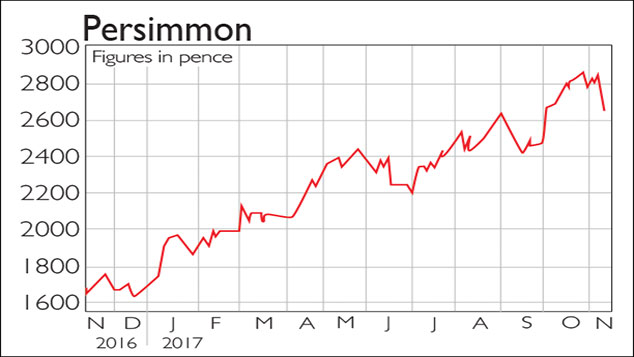Return to investing in real estate
It is sensible to hold real estate as part of an overall diversified portfolio, says professional investor Delyth Richards. Here, she picks some of the best ways to do that.
Get the latest financial news, insights and expert analysis from our award-winning MoneyWeek team, to help you understand what really matters when it comes to your finances.
You are now subscribed
Your newsletter sign-up was successful
Want to add more newsletters?

Twice daily
MoneyWeek
Get the latest financial news, insights and expert analysis from our award-winning MoneyWeek team, to help you understand what really matters when it comes to your finances.

Four times a week
Look After My Bills
Sign up to our free money-saving newsletter, filled with the latest news and expert advice to help you find the best tips and deals for managing your bills. Start saving today!
Each week, a professional investor tells MoneyWeek where she'd put her money now. This week: Delyth Richards, head of funds research, Kleinwort Benson.
The property sector was hit particularly hard during the financial crisis of 2007/2008.British commercial property values saw their biggest correction between 2007 and 2009, falling 44% from peak to trough.
We now believe that an inflection point has been reached. The pace of monthly capital decline has slowed and there are signs emerging of capital growth. Investment Property Databank (IPD) data for May recorded the first price increase since November 2011. Although we have already seen a rally in real-estate stocks, British commercial property values have suffered a double dip' in real terms (adjusted for inflation), falling 5% after initially recovering by 18%. Prices remain 37% below the 2007 peak. We believe that there is now an opportunity to re-enter the market.
MoneyWeek
Subscribe to MoneyWeek today and get your first six magazine issues absolutely FREE

Sign up to Money Morning
Don't miss the latest investment and personal finances news, market analysis, plus money-saving tips with our free twice-daily newsletter
Don't miss the latest investment and personal finances news, market analysis, plus money-saving tips with our free twice-daily newsletter
British commercial property provides investors with an attractive income return (a gross initial yield of 6.33%, according to the IPD). The asset class offers a substantial premium over government bonds, alongside values that are still substantially below the market peak.
While economic confidence overall remains low, there are encouraging signs of improving trends across the various property markets in the United Kingdom. We do not have the overhang of vacant properties that was seen during the last market downturn. Tenant demand and rental growth is evident in selective regional sub-markets. A wider audience is once again able to access finance. These positive signs suggest there is potential for further capital growth in the sector and, positioned correctly, this can go hand in hand with increased demand from investors.
British leases are typically reviewed every five years on an upwards-only basis. This means that rents are reviewed to market level, or if this is lower than the current rent received the rental income remains the same. The upwards-only nature of the leases and the net income received make the asset class attractive to institutional investors, who often consider real-estate income as similar to that generated by a bond. This steady rise in commercial rents is encouraging in the medium term, as investors can benefit from the overall confidence in the sector. This increased investor demand may also lead to an overall increase in capital growth.
British construction levels have hovered around January 2010 levels, showing sustained performance. In the residential sector, recent encouraging signs from major British house builders, such as Berkeley Group (LSE: BKG) and Persimmon (LSE: PSN), have shown that demand for new-builds is rising, in part helped by the government's Help to Buy' and Funding for Lending' schemes.
We favour broad diversified commercial UK real estate, reaping the overall rewards from the sector as a whole, with a particular focus on the commercial real-estate sub-sector. Real-estate investment trusts (Reits) continue to offer opportunity for growth. UK property unit trusts, such as Henderson UK Property (www.henderson.com), also provide a sustainable income, with potential for growth. We think it is sensible to hold real estate as part of an overall diversified portfolio.
Get the latest financial news, insights and expert analysis from our award-winning MoneyWeek team, to help you understand what really matters when it comes to your finances.
-
 Should you buy an active ETF?
Should you buy an active ETF?ETFs are often mischaracterised as passive products, but they can be a convenient way to add active management to your portfolio
-
 Power up your pension before 5 April – easy ways to save before the tax year end
Power up your pension before 5 April – easy ways to save before the tax year endWith the end of the tax year looming, pension savers currently have a window to review and maximise what’s going into their retirement funds – we look at how
-
 Persimmon yields 13.8%, but can you trust it to deliver?
Persimmon yields 13.8%, but can you trust it to deliver?Tips With a dividend yield of 13.8%, Persimmon looks like a highly attractive prospect for income investors. But that sort of yield can also indicate a company in distress. Rupert Hargreaves looks at the numbers to find out if it's sustainable.
-
 If you’d invested in: Persimmon and Centrica
If you’d invested in: Persimmon and CentricaFeatures Persimmon is the UK’s second-largest housebuilder. In November, it said the total sales rate per site for the third quarter was in line with the same period last year.
-
 Should you buy housebuilders?
Should you buy housebuilders?Features House builders have seen their shares hammered since the Brexit vote. Is there further to fall – or is this a buying opportunity? Sarah Moore investigates.
-
 FTSE 100 ahead as eurozone succumbs to deflation
FTSE 100 ahead as eurozone succumbs to deflationMarket Reports Falling prices in the eurozone have heaped yet more pressure on central bank boss Mario Draghi to turn on the money taps.
-
 It’s time to sell out of the housebuilding sector – here’s why
It’s time to sell out of the housebuilding sector – here’s whyFeatures Shares in housebuilders have done very well in the last few years. But it's time to sell. Ed Bowsher explains why, and picks a more attractive sector to buy.